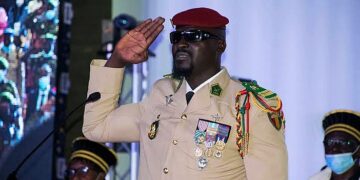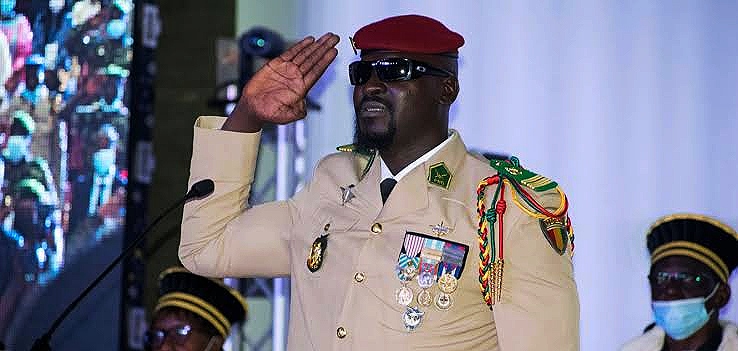By John Ikani
The head of Guinea’s military government, Colonel Mamady Doumbouya has announced that the country will return to civilian rule after a 39-month transition period.
Speaking on television, Col Doumbouya said the proposal would now be put to Guinea’s Parliament.
The announcement came after the creation of what the regime has described as an “inclusive consultation framework” in April.
That culminated in a conference boycotted by several prominent political groups.
On Friday, the army-dominated government said the forum was considering a transition period of 18-52 months.
On Saturday, Col Doumbouya said the 39-month period – three years and three months – was the “median proposal.
Guinea’s National Transition Council (CNT), an 80-member body set up after the coup to act as a parliament, is also tasked with setting a date for the country’s next election – but is yet to do so.
Col Doumbouya has promised that no-one taking part in the interim government, including himself, will be allowed to stand in future elections that will determine the next civilian government.
In September 2021, army officers led by Colonel Mamady Doumbouya ousted elected president Alpha Conde in the impoverished former French colony.
Conde, 84, had drawn fierce opposition after he pushed through a new constitution in 2020 that allowed him to run for a third presidential term.
Following the coup, ECOWAS called for a return to civilian rule within six months.
Although many Guineans initially welcomed the coup, there is growing discontent against the junta in the nation of 13 million people.
Guinea’s coup last September came on the heels of a military takeover in Mali.
ECOWAS has applied sanctions on members of the Mali junta, shut its borders with the country, frozen its assets at the Central Bank of West African States and imposed a trade embargo.
For Guinea, leading junta members have been sanctioned and are subject to a travel ban within the bloc.
A third ECOWAS member, Burkina Faso, experienced a coup in January.
It has so far escaped the sanctions handed out to Guinea and Mali but was also given until last Monday to spell out an “acceptable transition timetable.”
The Burkinabe junta has said it stands by a three-year schedule for holding elections, arguing that it first has to deal with a bloody jihadist insurgency.




































